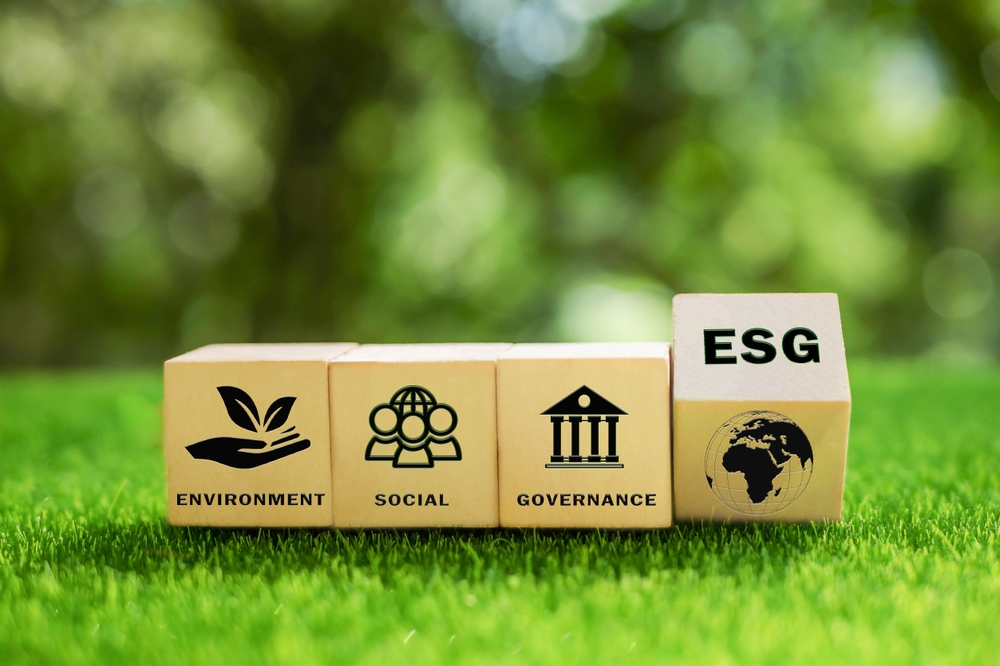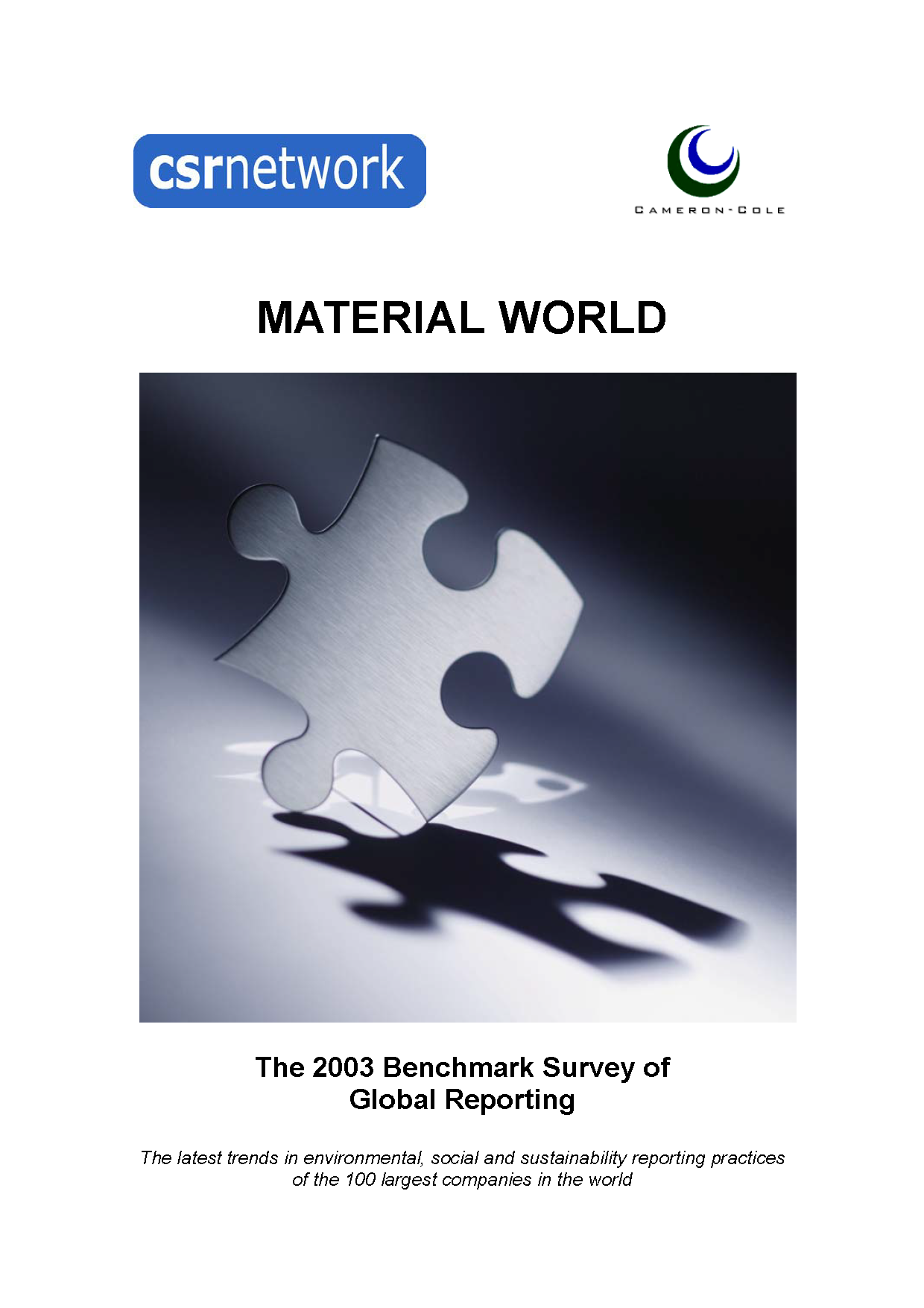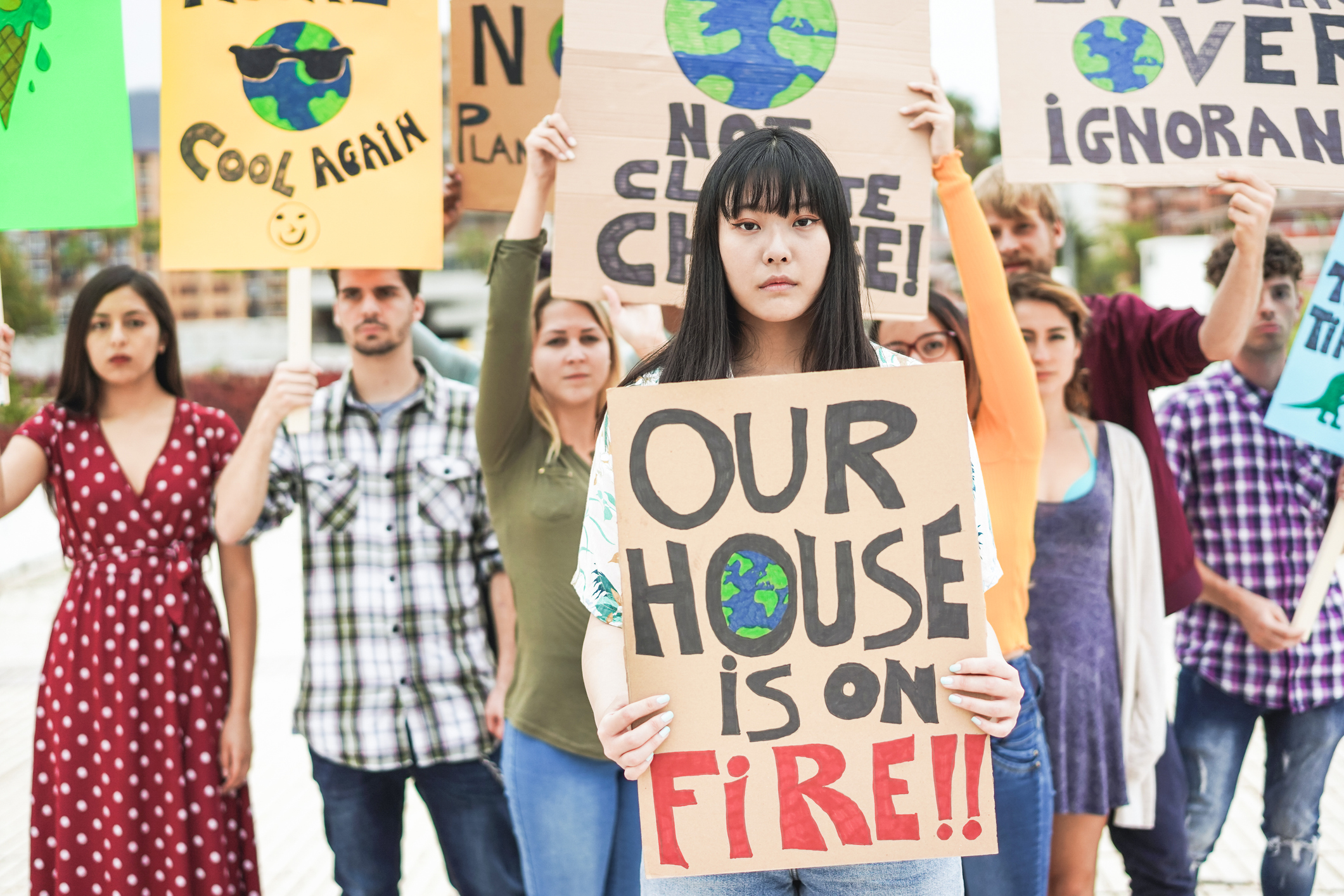Shipping’s decarbonisation – momentum without a map
Shipping’s transition towards decarbonisation is often framed as a fuel problem. In practice, the technical routes are already understood and, in some cases, actively deployed. The real challenge lies in scaling them under conditions of regulatory uncertainty, uneven fuel availability and a market that continues to prioritise short-term cost efficiency — particularly in a sector defined by long asset lives, volatile charter markets and tight balance sheet discipline. What happens next will depend less on new technology than on whether the industry can price transition risk credibly, align regulation with investment cycles and secure customer acceptance of higher operating costs.
The UK’s move to ISSB reporting - what this means for reporters
The FCA has now set out its roadmap for transitioning from TCFD to ISSB-based UK Sustainability Reporting Standards (SRS). The consultation is open, but the direction of travel is clear. For UK companies, this is no longer a question of if sustainability disclosures become more structured and rigorous. It is a question of when and how prepared you will be when they do. For many UK companies, the real work is not understanding the draft standards. It is assessing whether current data, governance and assurance arrangements could withstand investor-grade scrutiny under the new regime.
The GHG Protocol is changing - what companies should do now
The Greenhouse Gas Protocol is undergoing its most significant revision since the introduction of the Scope 2 Guidance in 2015. Proposed updates to the Corporate Standard and Scope 2 rules will reshape how organisations define boundaries, report exclusions, account for electricity, and substantiate renewable energy claims. While final standards are unlikely before 2027, the direction of travel is clear. Companies that wait for certainty, risk being unprepared — operationally, strategically, and reputationally. Yet the debate is not just technical. It goes to the heart of what impact we should expect as a result of corporate climate action. This article outlines: the key proposed changes; the structural problems they attempt to address — and may still leave unresolved; the actions all companies should now take to future-proof their GHG reporting.
Sustainability communications that build trust – not checklists
Over the past 20 years, I’ve worked with companies at every stage of maturity on sustainability reporting, from early, largely narrative reports through to today’s highly structured disclosures. Frameworks have evolved, but the underlying communications challenge has not. The same questions surface time and again: What do I include? Why am I writing this content? Who is it for? Which gaps should I prioritise now, and which can be addressed over time? When these questions are not answered clearly, sustainability communications quickly become a compliance exercise rather than a way of building trust.
CBAM and the steel sector - data integrity, competitive shifts, and the MENA opportunity
CBAM is going to reshape the steel market by turning carbon emissions data into a determinant of cost, compliance and competitiveness. For producers and importers alike, the ability to generate verified, credible emissions data will define access to EU markets and the effectiveness of decarbonisation incentives. At the same time, regional advantages — particularly in MENA, where production routes and energy potential align with low-carbon steelmaking — could shift global supply leadership. In this emerging landscape, data integrity is no longer a technical detail, but a strategic asset that will separate future market leaders from those left navigating uncertainty.
Green steel - pressing the accelerator with the handbrake on
The decarbonisation of steel is often framed as a technological challenge. In reality, many of the core technical solutions are already understood, tested and increasingly deployed. The question now facing the industry is not what needs to be done, but whether the conditions exist to do it at scale. What comes next for green steel depends less on innovation breakthroughs and more on the economic, policy and market environment that surrounds them. I have spent a large part of my career working with steel producers on accounting for, and assuring, carbon emission reductions. Here are some of my reflections on the current direction of the industry.
Double materiality in practice - applying or avoiding judgement
Double materiality is now a core requirement under CSRD, intended to inform strategy, risk management and decision-making by assessing both financial impacts of sustainability issues and a company’s impacts on people and the environment. In practice, however, it is often treated as a compliance-driven reporting exercise, limiting its value. Common shortcomings include a reluctance to apply and defend judgement, an overemphasis on completeness that results in long and unclear lists of material topics, and heavy reliance on generic inputs rather than company-specific evidence. Stakeholder engagement is frequently superficial and poorly linked to conclusions, while impact and financial materiality are often assessed separately despite being closely connected over time. When approached with clear prioritisation, robust thresholds and transparent reasoning, double materiality can move beyond compliance to become a strategic capability that supports long-term value creation and accountability.
Sustainability in the shadow of conflict
In his recent reflections on the tumultuous turn of our times, John Elkington — one of the architects of modern sustainability thinking — has reminded us that the familiar contours of markets, environment and social purpose are being upended by forces that once seemed peripheral. What was once marginal — disruption, crisis, chaotic transition — is now central to how we must think about sustainability for the coming decade. Building on this, I put forward here three additional dimensions that we must also reflect on. 1. The New Geopolitics of Resources: Are We Already at War? 2. Arctic Drilling: A Climate Crossroads 3. Economics of War and the “Sustainable” State. Sustainability — as a concept and as practice — cannot remain confined to emissions targets or corporate scorecards. Instead, it must integrate geopolitical risk, resource governance, ethical defence, and conflict prevention into how we think about long-term resilience and equitable futures.
The future of AI in sustainability assurance
As sustainability reporting evolves, expectations around assurance are rising, even as disclosures become broader, more complex and more qualitative. Regulators and investors increasingly expect sustainability information to meet standards of rigour comparable to financial reporting. In this context, AI is emerging as a key enabler of more effective, proportionate sustainability assurance. AI’s value is not in replacing professional judgement, but in making higher coverage practical. By automating routine compliance checks, improving evidence traceability and highlighting inconsistencies or higher-risk areas, AI helps assurance teams navigate large volumes of disclosures more systematically. This allows practitioners to focus on assessing credibility, balance and completeness. Realising these benefits depends on progress on both sides. Organisations that invest in structured, AI-ready reporting processes will be easier to assure and better prepared as requirements evolve. While AI will reshape how sustainability assurance is delivered, accountability and judgement must remain firmly human.
What next for ESG investing
ESG investing promised alignment between capital and sustainability. But in 2025, is it really delivering? This Insight explores where the promise fell short—and what must come next. The rise of ESG (Environmental, Social, and Governance) investing was hailed as a potential tipping point—a way to align capital with climate goals, protect social value, and drive better corporate behaviour. A decade ago, hopes were high that financial markets could be a decisive lever in avoiding environmental collapse and achieving the Sustainable Development Goals. But in 2025, that optimism seems now to be desperately misplaced. Despite trillions in ESG-labelled funds, the world remains completely off-track on virtually all major environmental indicators. The Stockholm Resilience Centre reports that six of nine planetary boundaries have already been exceeded (Richardson et al., 2023). Biodiversity loss, nitrogen pollution, and climate change are accelerating. Some leading ESG investors are scaling down their commitments and shifting priorities. If ESG investing is truly driving meaningful outcomes, the evidence is elusive . So, what went wrong—and is there hope for any course correction?
Value Chain
Whilst governance failings at the Science Based Targets Initiative (SBTi) have generated many pious headlines just recently, in our view this detracts from the detailed work ongoing at SBTi to determine the suitability of ‘Environmental Attribute Certificates’ (EACs). Looking at other types of EACs (not including offsets), our experience has been that this type of market mechanism can be an effective way to incentivise the types of carbon savings that companies can achieve by making changes to their own operations in the short term. Whether SBTi can deliver a rulebook on EACs that is acceptable to both the commercial interests of companies, and the wider range of sustainability stakeholders remains to be seen, but we should not jump to conclusions just yet.
Material World
Over 20 years ago, a company that I co-founded (called CSR Network) produced annual benchmarks on the state of social and environmental reporting by FORTUNE magazine’s G100 list of the world’s largest companies. Looking back at the results from 2003, one of the key findings related to materiality. Fast forward to the present day, sustainability reporting by global companies is commonplace, and the concept of double materiality has been enshrined in the European Union’s Corporate Sustainability Reporting Directive (CSRD). But will double materiality really influence what companies disclose? And who will check whether a company’s materiality analysis has applied and interpreted impact and financial thresholds correctly and consistently to generate a meaningful output? A lot has changed in the last twenty years, but still more change is needed.
Enough targets – time for action, or else...
Climate change-related litigation cases are growing. Whilst both Governments and companies may try to use legalese to position net zero strategies as plans which will be subject to forces outside of their control (to some extent), such tactics may provide little protection in the ‘court’ of public reputation. Companies now need to make an accurate assessment of progress towards these targets, and assurance providers must form their own opinion on whether these claims are supported by evidence. Perhaps by 2030 we will look back on this early period of TCFD reporting as the start of a period where companies, and their assurance providers, can really be held to account for what they publish.
Raising the stakes
Stakeholders increasingly expect companies to report sustainability (or ‘non-financial’) data in the context of their core business strategy and financial outlook, to properly understand risks and opportunities. As the stakes rise, how can a company have confidence that reported sustainability data are reliable and accurate?
Net Zero credibility
As Saudi Arabia pledges the country will aim to reach "Net Zero" emissions of greenhouse gases by 2060, US steel producer Nucor announces the creation of “the world’s first Net Zero carbon steel", reliant on the purchase of offsets and including no Scope 3 emissions. Step forward the Science Based Targets initiative, with their Net Zero Standard. But will this become ‘good practice, adopted by many’ or ‘the gold standard, adopted by the few’? The credibility of Net Zero is under threat.
Zeroing-in on assurance of net zero targets and claims
Setting net-zero targets is instinctively attractive to chief executives and sustainability managers alike. Led by the Science Based Targets Initiative (SBTi), the first science-based global Standard for corporate net-zero targets, is nearing finalisation ahead of COP26. Many companies that have already set net zero targets will be looking closely to see how their targets will stand up to the scrutiny of independent assurance, when the time comes to publish their sustainability reports next year.
Visions of Tomorrow - Spirax-Sarco Engineering. Conversations with our clients on sustainability leadership
In June 2021, Spirax-Sarco Engineering announced the launch of a refreshed sustainability strategy for the company, ‘One Planet: Engineering with Purpose’. Starting in autumn 2020, Challenge Sustainability was commissioned to provide advice and work alongside Spirax-Sarco Engineering on the development of the refreshed strategy. Challenge Sustainability Director, Jon Woodhead, spoke with Dr Sarah Peers, Group Head of Sustainability, Spirax-Sarco Engineering plc, about the process and rationale behind this work.
Grouping together on climate change
As the world's seven largest advanced economies, known as the G7, prepares to meet again in June 2021, one topic it is expected they will focus on is climate change. It is clear that finance and regulation will drive forward corporate action on climate change in the coming months and years ahead, and each of these will influence corporate reporting. G7 finance ministers have already committed to mandatory corporate reporting on climate impacts and investment decisions, and they supported work by the International Financial Reporting Standards Foundation on a new global standard for sustainability reporting. In Europe, companies are watching closely the development of new 'environmental claims' regulations by the European Commission. This article looks at how the confluence of these developments sets the scene to influence corporate action and communications on climate change.
Unintended consequences of transitioning to electric
Governments around the world are rapidly establishing commitments that seek to phase out the sale of petrol and diesel vehicles, in favour of models that are electrically powered. The automotive sector, like many others, are setting 'net zero' targets in relation to carbon emissions. The mining of minerals used in the manufacture of electric vehicle batteries, such as cobalt, graphite, lithium, and nickel, have significant environmental and social impacts. This gives rise to a potential unintended consequence of the transition to electric; the risk is that we replace a dependency on fossil fuels with a dependency on minerals. Presenting ‘Net Zero’ targets, without demonstrating the true impact of your organisation's upstream and downstream activities risks presenting a very limited picture. This article explores the need to understand full value chain impacts and develop credible sustainability communications.
Harnessing customer climate activism
In early 2021, the shareprice of Gamestop was affected by the actions of small shareholders co-ordinated via the social media forum, reddit. This case give us a glimpse of the possibilities for this type of social activism, and how it can be harnessed for good. Data and information can be rapidly shared, building ‘swarm intelligence’ amongst a community of interested parties, leading to recommended actions that could have far reaching consequences. These consequences are not limited to share prices – brands could suffer large scale sales declines as a result of momentum building behind a reddit thread on climate change, or on other sustainability topics – not least diversity and inclusion. In the current ‘cancel culture’, this is a potentially significant risk to any brand. This article explores what can a company do, not only to mitigate these risks, but to get ahead of the curve.
Closing the net on Net Zero
Global efforts to coordinate action aimed at managing the climate crisis have both gathered pace and gained much greater focus in the years since the Paris Agreement in 2016 . The contribution made by the corporate sector is the subject of particular scrutiny as companies face up to the challenge to achieve ‘Net Zero’. In the context of corporate efforts on climate change, net-zero can be defined as “a transition to a business model that creates value without causing impacts from the accumulation of greenhouse gases in the atmosphere.” Looking at the details amongst recently announced corporate ‘net-zero’ targets, there are a number differences in approach. As momentum builds towards the next United Nations Climate Change Conference in November 2021 (COP26), more scrutiny will inevitably fall on these targets. Companies will need to pay close attention to the development of standards and guidance on ‘net-zero’.
Use the Force
In the face of an ongoing global health pandemic, many companies are having to focus on the basics. Meanwhile, another international crisis that impacts business - climate change – continues to gather pace. The recommendations of the Task Force on Climate Related Financial Disclosures (TCFD) were first published over 3 years ago. These focus on greater transparency surrounding how climate risk affects business success. Yet even before the Covid-19 crisis began, many companies were only paying lip service to TCFD reporting. Now TCFD risks becoming a task with no force. We examine the current state of play, and suggest how companies can take more meaningful steps towards TCFD reporting.
Sustainability reporting in Indonesia
Reporting on social and environmental activities by Indonesian companies has been evolving for many years already. Some leading Indonesian companies have over ten years of sustainability reporting ‘history’ and have clearly stated that they see this type of transparency and disclosure as an essential way to maintain the trust of stakeholders. In 2017 the Indonesia Financial Services Authority (Otoritas Jasa Keuangan) published rule number 51/POJK.03/2017: Implementation of Sustainability Finance for Financial Services Institutions, Issuers and Public Companies. This required all listed companies to publish sustainability reports, starting with banking sector companies (from 2019), and broadening to a wider range of listed companies (from 2020). Challenge Sustainability has been developing two of these first OJK Reports. From this experience we offer a number of observations.
Green recovery
COVID-19 will be without doubt a defining moment in history. It has brought home how we are all connected, and the urgency with which we need to plan for a more sustainable future. As we all continue to deal with the impacts of the COVID-19 pandemic, there are developing discussions on what the future will look like for companies as we begin to emerge from the pandemic. More than 50 CEOs from the banking and assurance sector recently formed the ‘green recovery alliance’, recognising the importance of aligning economic recovery after the coronavirus crisis with the ecological transition. A the same time the Institutional Investor Group on Climate Change (IIGCC), which manages more than $34 trillion in assets, nearly half the world’s invested capital, issued a statement urging governments to do more to ensure the economic response to the coronavirus crisis aligns with the Paris Agreement on climate change. So, we can expect investor pressure on companies to respond and disclose to grow. COVID-19 might be the tipping point that causes companies to react.
Tax doesn’t have to be taxing
Over recent years there have been many examples of companies judged to be negating their tax obligations, fuelling consumer frustration and mistrust on the sensitive and emotive issue of tax. Ever since the Panama Papers, the debate has continued on what is deemed a ‘fair’ level of tax to pay, irrespective of the legality of such exploits. Research suggests that hundreds of billion US dollars a year in corporate income tax revenues are lost due to tax avoidance techniques, depriving Governments of money to fuel investments in social infrastructure. Disclosures on tax in traditional annual financial report and accounts are impenetrable, sometimes deliberately so. Until now, only a few companies have gone into any great detail on their approach to tax, in their corporate sustainability reporting. This is now set to change. The Global Reporting Initiative (GRI) has recently issued a new standard on tax with the aim of promoting greater transparency on companies’ approach to taxes. The GRI Tax Standard won’t pressurise companies to pay more tax. It does however ask a company to be transparent and put taxes paid in wider context and tell the story that sits behind the numbers.
Navigating the maze of Sustainable Finance
How can investors understand climate change and other sustainability issues as components of corporate risk? To help identify the information needed by investors, lenders, and insurance underwriters to appropriately assess and price climate-related risks and opportunities, the Financial Stability Board established an industry-led task force: the Task Force on Climate-related Financial Disclosures (TCFD). $30 trillion of capital has already been pledged to Sustainable Finance and supporting outcomes aligned to Sustainability and Impact goals, such as the UN SDGs and this will only grow. But, this huge volume of capital is only trickling from behind a dam created by uncertainty from lack of data, taxonomies, schemas, reporting and products, robust enough to satisfy the risk register of financial institutions. The result is a lack of confidence about viable options for investing in sustainable initiatives. Where do we go from here?
Building trust in technology
Individuals tend to trust technology as much as they see it personally benefitting them, but emerging technologies are yet to earn that trust. Building trust in technology requires accurate, relevant and balanced sustainability reporting, explaining impacts in their local context.
Whatever it takes
It seems the pace of change is forever speeding up in all aspects of life, not least climate change. Companies, just like Governments, have however been typically slow to change course: new policies and targets take months (and sometimes years) to formulate and achieve approval, especially where these are interwoven with commercial strategies. So, how should corporate communications on sustainability react to the ever louder clamour for immediate action, results, and signals of hope? This article explores the need for companies to take urgent action: using scientific evidence to support fast-tracking of new targets to reduce their sustainability impacts in fundamental ways. ‘Whatever it takes’ is easy to say, but hard to live up to.
Effective sustainability reporting
Over the last 10 years, the sustainability reporting landscape has changed remarkably. Like many aspects of media today, thirst for information and data, the speed of communication and the sheer number of channels available to convey messages and engage has grown almost out of all comprehension. Set in the wider context of global sustainability challenges that fill our news feeds, from plastics to gender equality, climate change to modern slavery, the expectations on companies to make their position clear has never been greater. This article sets out five challenges for companies to overcome in order to create meaningful and impactful sustainability communications.
Value from sustainability report assurance
At Challenge Sustainability, our experience of sustainability report assurance stretches back to the development of the first multi-stakeholder assurance standards, some 20 years ago. Over this time, we have signed off hundreds of sustainability assurance statements, and seen the role assurance plays subtly change as the sustainability profession has matured. Having worked in two types of roles; as assurance provider or on the other side of the fence, supporting reporting and strategy clients through their assurance process, we have a good feel for what works and what doesn’t. This article describes the steps that companies can take to ensure they gain the most value out of the assurance process.
Materiality - beyond reporting
Materiality - identifying and prioritising the issues most prevalent for your business, should be the guiding light for your sustainability strategy. A well designed materiality process also supports sustainability reporting, ensuring you are communicating your response to issues most relevant to your stakeholders. Yet, too many companies miss issues, don’t prioritise correctly, overlook the link with other activities already established in the business and only apply materiality as a sustainability reporting process. This article explores the keys to using the concept of materiality successfully within your sustainability strategy and reporting.
SDGs - Maximising the opportunities
In the time since the SDG’s were announced almost three years ago, they have served a useful role in advancing the way business can engage and communicate sustainability. However, many companies are not yet maximising the opportunity, and are at worst playing lip service by using the goals to showcase ‘business as usual’. The SDGs are helpful as a common and consistent external framework the cuts across governments, wider society and business. But, like any framework the goals need to be considered carefully and not approached as a straightforward ‘tick box’ exercise. In this article, Challenge Sustainability present a series of observations for companies seeking to avoid common pitfalls and make the most of the opportunities the SDG’s offer.
Launching a new sustainability strategy
For those companies going through the process of launching a new ‘vision’, ‘framework’, ‘mission’, ‘dashboard’ or other type of ‘strategy’, a number of challenges present themselves. We have distilled down a series of key learnings for any company looking to get maximum value and impact from all the hard work of developing a new strategy.
Opportunities in the war on plastics
As the war against plastics remains a hot topic, more and more companies are responding with new commitments to reduce plastic use in a variety of ways, often in favour of paper-based products. Based on our work with the paper products sector over the last 15 years, Challenge Sustainability shares the top five challenges the sector must focus on to build communication messages that maximise the opportunity the war on plastics presents.

































